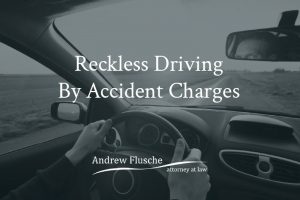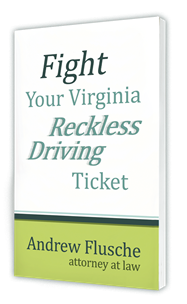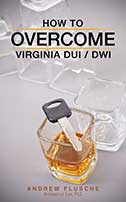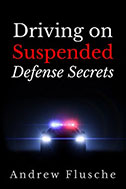Reckless Driving By Accident Charges
After a Virginia motor vehicle accident, law enforcement typically comes to the scene. As part of their investigation, the officer might issue a citation or ticket to anyone responsible for causing the accident.
In some situations, a police officer could determine that a motorist’s conduct went beyond a minor traffic violation and entered into the realm of reckless driving.
These, often subjective determinations, can have lifelong consequences for those arrested, charged, or convicted of reckless driving in Virginia.
An experienced reckless driving defense attorney like those at Andrew Flusche, Attorney at Law, PLC, can help drivers accused of these offenses understand their rights and defenses.
What Is Reckless Driving by Accident in Virginia?
In Virginia, law enforcement can charge a driver with reckless driving even if an officer did not witness the event.
These charges often occur when police officers respond to the scene of an accident, find that a citation is necessary, and determine that there are no other traffic citations that appropriately fit the situation.
Unlike many additional criminal charges, the Commonwealth does not maintain a specific statute for reckless driving. Instead, these charges tend to fall under VA Code Section 46.2–852 or 46.2–853.
Most reckless driving by accident charges stems from the general rule under VA Code Section 46.2-852. The most common reckless driving by accident charges involves endangerment or lack of control.
Endangerment refers to driving in a manner that endangers property or another person. Lack of control refers to reckless driving with defective brakes or when a motorist cannot maintain control of their vehicle.
In light of this broad definition, many people face these reckless driving charges after an accident.
What is Reckless Endangerment in Virginia?
Many people are confused by their Virginia reckless driving ticket. You may not be sure what exactly you’re charged with. Some folks think that it’s a charge for “reckless endangerment.”
Reckless endangerment generally refers to acting in a way that creates a substantial risk of serious physical injury to a person.
The Virginia Code doesn’t actually use the specific term of “reckless endangerment” for the reckless driving statutes. The general reckless driving rule just says that you’re guilty of reckless driving if you operate your vehicle in a way that endangers the life, limb, or property of any person.
For a charge of general Virginia reckless driving, the judge will have to analyze all the facts and circumstances of your case to decide whether or not your driving was so dangerous to pose a hazard to people or property.
As you can see, reckless driving general is a bit of a broader concept than reckless endangerment. That’s all the more reason to call today to begin your defense.
Virginia Laws that Define Reckless Driving
In addition to the general rule, several other statutes define reckless driving. Some of the statutes include the following VA Code Sections:
- Failing to maintain control or improper brakes: Section 46.2-853;
- Passing on a curve: Section 46.2-854;
- Passing two vehicles going in the same direction: Section 46.2-856;
- Passing at a railroad grade or an intersection: Section 46.2-858;
- Driving too fast for traffic conditions: Section 46.2-861; and
- Street racing: Section 46.2-865.
These charges are Class 1 misdemeanors and have the same potential repercussions.
Defenses for Reckless Driving in Virginia
While reckless driving includes a broad array of offenses, courts acknowledge that some accidents are inevitable, and there might not be a party who is to blame.
In some cases, you could be charged with reckless driving, but the Commonwealth might not have enough evidence to secure a conviction. This is when an attorney is particularly valuable.
An experienced reckless driving defense attorney can help you develop a strong defense. Some viable defenses include establishing that:
- There was an unavoidable road hazard that caused the accident,
- The driver’s vehicle had an unknown mechanical defect, or
- A third party’s actions caused the accident.
While these defenses seem straightforward, they typically require a significant amount of evidence. An attorney can represent you, gather evidence, interview witnesses, and present a compelling and legally sound defense.
Were You Charged with Reckless Driving in Virginia?
If you were recently cited for reckless driving in Virginia, it’s important that you understand your options.
Attorney Andrew Flusche is a skilled Virginia reckless driving attorney with hands-on experience fighting all types of traffic offenses.
Attorney Flusche has handled thousands of reckless driving cases and knows what it takes to defend against these challenging charges successfully.
To learn more, call us at 540-318-5824 today. You can also reach Andrew Flusche, Attorney at Law, PLC, through the firm’s online contact form.





